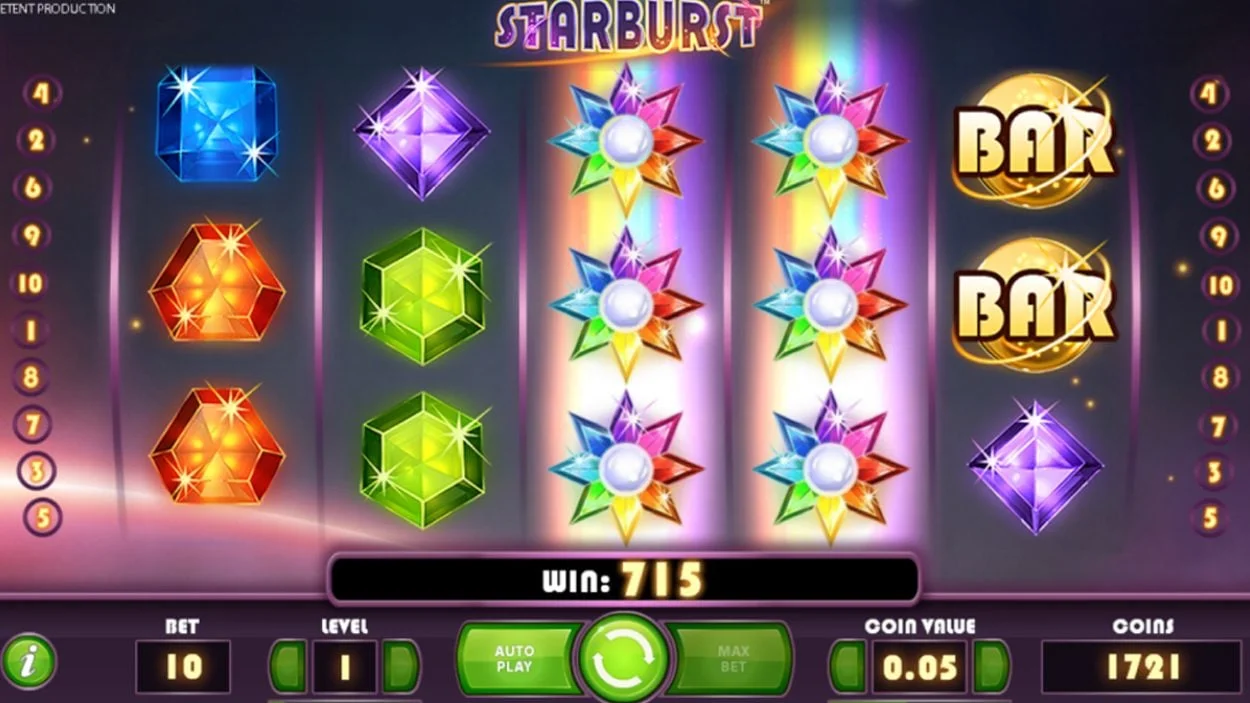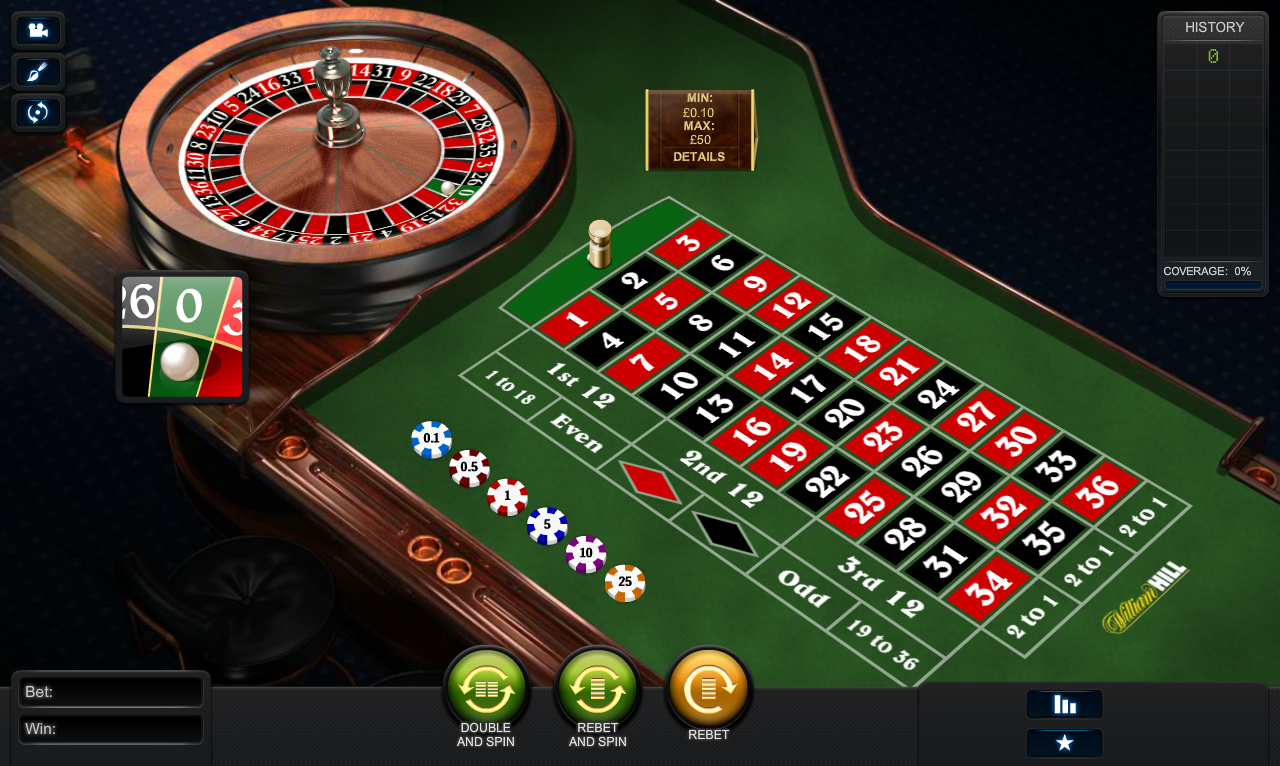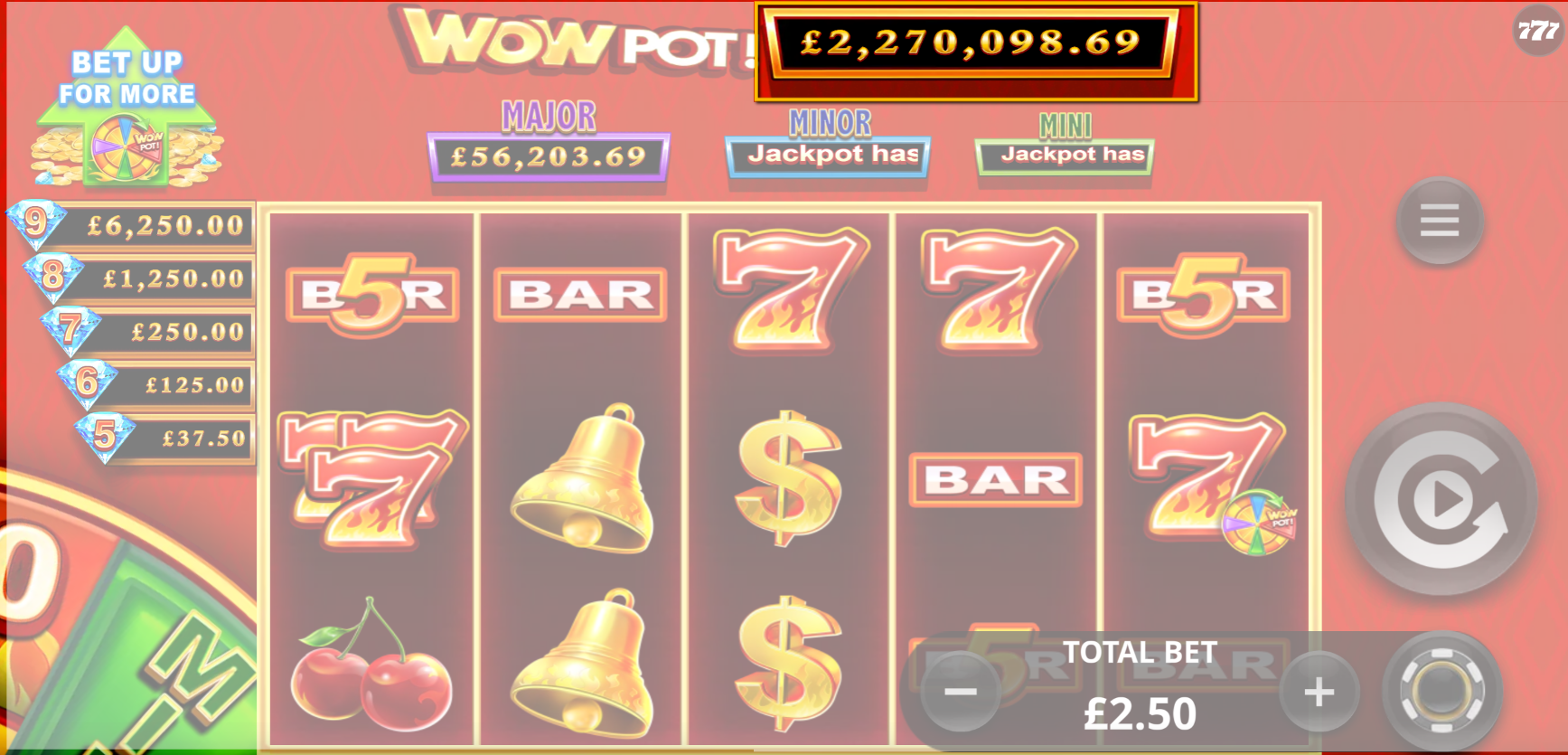The Ultimate Guide to Casinos 2025
If you’ve ever fancied a spin on the slots, or a chance to try your luck at the tables, then no doubt you’ve considered joining a casino.
Casinos, specifically online casinos, are one of the biggest growth industries in the world right now and the UK is a major player.
UK Gambling Commission statistics show that between April 2022 – March 2023, an incredible £4 billion was spent on online casino games in the UK alone, £3.2 billion of which was on slot games.
Current projections show this figure rising to just under £5 billion this year and by 2028, the UK is expected to have around 20.6 million online casino users. That’s almost a third of the population!
So what is it that makes casinos so appealing? How do online casinos work? Are they regulated? And is it possible to beat the casino? We’ll take a look at all of these things below in our ultimate guide to casinos.
The History Of Casinos
Believe it or not, the first casino dates all the way back to 1638 when the Casino di Venezia opened on the Grand Canal in Venice.
Without a single hint of neon in sight (!), it was built in the wing of a theatre so that guests could gamble during the intermission.
Of course, casinos have come a long way since then. 1931 saw the emergence of Las Vegas as the gambling capital of the world, the first online casinos were introduced in 1994 and casinos went mobile in 2023.
These days online casinos are more accessible than ever so if you’re thinking of giving them a go, then it's a good idea to familiarise yourself with the basics to get off to a great start.
Types of Casinos
There are two types of casinos – land-based casinos and online casinos and both have their advantages and disadvantages.
Land-based Casinos
Land-based casinos are the brick-and-mortar buildings that you physically go to in order to gamble. They have limited numbers of games depending on their size and set opening hours.
Many casino players prefer visiting land-based casinos for the social element. The lights, the sounds, the feeling of going somewhere special, meeting other people and sitting around a live table with other players is what makes it appealing.
Online Casinos
Online casinos are something you access remotely either from a PC or mobile device. There are no limitations to how many games they offer and they are available 24/7.
The popularity of online casinos comes from their convenience and accessibility. No matter where you are or what you’re doing you can log into your account and play casino games at any time and from anywhere.
Many online casinos try to recreate the social element of land-based casinos by offering live dealer games with chat functions to make it more interactive.
What Is The Appeal Of Casinos?
Casinos offer something that a lot of other entertainment can’t – the chance to win.
Whether you love being able to use your skills at the poker table, the sights and sounds of a slot machine or chancing your luck at a roulette wheel, casinos have one inherent quality – possibility!
Of course, you’re not always guaranteed to win, but the hope and the opportunity to hit a jackpot are omnipresent. It’s the same as buying a lottery ticket.
But, with casinos, there are ways you can improve your chances of winning. By using strategies and advantage gambling it is possible to gain an edge over the casino which we’ll cover later.
Casinos are exciting, full of potential, entertaining and, let’s be honest, a bit sexy. If you don’t agree, go and watch Casino Royale!
Casino Games
Casino games can be divided into two categories – slot games and table games. While many players will play a cross-section of both, you’ll also find many players who have a favourite casino game and they stick to it.
Slot Games
Slots, sometimes called fruit machines or one-arm bandits, depending on your age, have been around since the 1890’s. In Australia they are called pokies which always makes me smile.
Traditional slot games are mostly based on a three-reel system and you have to line up the symbols on one line to win. While modern video slots come in hundreds of styles and themes and often have up to 50 paylines, or even more in the case of Megaways games.
Advanced technology has brought increasingly impressive online slot games with better graphics, superior bonus features and new ways to win such as progressive jackpots.

Common bonus features in slot games include free games, wheel spins, hold and spins, multiplying wilds and expanding reels. The bigger and louder the better really.
It is true that there isn’t really a skill to playing slots. It’s a case of pressing the spin button and seeing what lands. There are, though, strategies and tactics you can use to improve your chances.
Some of the most popular slot games in the UK online casino industry include:
- Book of Dead
- Big Bass Bonanza
- Gates of Olympus
- Starburst
- Gonzo’s Quest
- Immortal Romance
- Sweet Bonanza
Table Games
Table games are those that involve cards, dice or chips and usually take place on a table-top. Of course, when it comes to online casinos, the table is just a graphic on the screen, but it usually still has that familiar green or blue cloth backdrop.

The most popular table games are:
- Blackjack
- Roulette
- Poker
- Baccarat
- Craps
Some table games involve skill, particularly poker and, in a way, blackjack too. While others are more about luck such as roulette, craps or baccarat.
Due to their popularity, table games have hundreds of variations, especially online. If you look at a game like roulette in an online casino, you’ll find several versions such as Lightning Roulette, Mega Roulette, Quantum Roulette, Football Roulette, and even Sticky Bandits Roulette.
Most online casinos offer two types of table games – electronic and live dealer. However, some just have one of these options on offer.
Live dealer table games involve you watching a live dealer on video stream who is dealing cards or spinning the roulette wheel. You place bets virtually but can often interact with the dealer via a chat function.
Meanwhile, electronic table games involve you effectively playing against the casino in a computer simulated version of the live table game.
How Do Online Casino Games Work?
In very basic terms, there are usually two parties involved in making online slots possible – the operator and the games provider.
The operator is the actual casino brand that you’re playing in e.g. Betfred, Paddy Power, Foxy Games etc.
The games provider is the company that provides the game, software and technology to ensure the games functionality on the operators site e.g. Microgaming, Playtech, NetEnt etc.
When you sign-up to an online casino and browse the library you can often see games from many different providers.
Each game comes with its own format, rules, features and pay scales. This information should be available on the website for you to browse but often comes with abbreviations and terminology.
With that in mind, here’s some common casino terminology and what it actually means to players to help you understand how they work.
RNG
Random Number Generator relates to the format of slot machines. It effectively means that every spin is completely random and cannot be predicted.
RTP
This is the Return to Player percentage of each game. The average RTP of online games is usually between 90 – 97%.
This means that as an average, for every £100 put into a game, players might expect to receive £90 - £97 back. However, this average is taken over a significant number of spins and is not applicable to each individual player. You can still come away with nothing.
The RTP, therefore, is more of a guide than a guarantee when it comes to casino play. The general advice, though, is that the higher RTP the more chance you have of minimising losses and maximising wins.
Volatility/Variance
Volatility or variance refers to how volatile a game can be. Think of it like a rollercoaster.
A high volatile game would be one with a fairly slow and non-eventful ride but at one point on the track there is a huge loop-de-loop that throws you upside down, jiggles you about and then drops you 50 feet before carrying on slowly.
A low volatile game is the opposite. It’s a rollercoaster ride with lots of twists and turns, a few jumps up and down and keeps you entertained with regular intervals but doesn’t necessarily have that stomach wrenching wow moment.
High volatile slots pay infrequently but when they do they tend to have bigger payouts. A low volatility slot will pay out frequently with regular wins but not necessarily pay that well.
In terms of casino play, blackjack is a good example of a low volatility game as you can use strategy and low stakes to ensure regular wins. Conversely, poker would be considered high volatility due to the unpredictability of each hand, the high chance of losing but the big potential payout.
Slots can be both low and high volatility depending on the game. It just depends what type of ride you prefer.
House Edge
House Edge refers to the mathematical advantage that the casino has over the player and is mostly used in table games. It is the reasoning behind the statement ‘the house always wins’.
The house edge gives a measure of the percentage that a casino would expect to keep, on average, from each hand or spin, given normal patterns of play.
Blackjack is commonly known to have the lowest house edge of between 0.5% – 2%. This means that for every £100 bet, the casino would keep £0.50 - £2.00.
The main reason for blackjack house edge is because the player acts first before the dealer. So, there is a chance the player can bust out before the dealer has even played.
The house edge for roulette varies depending on which version you play. European Roulette has 36 numbers and a single zero, which means there are 37 outcomes in total. This has an average house edge of 2.70%.
American Roulette has 36 numbers, a single zero and a double zero, meaning there are 38 outcomes and that increases the average house edge to 5.26%.
Casino Bonuses
Casino bonuses are offers and promotions used to entice, reignite and reward casino players. They come in many forms, but ultimately have one goal, which is to get players to interact with the casino.
Below we’ll take a look at the most common casino bonuses and how they work.

Welcome Offers
Most casinos offer some kind of introductory offer to entice new customers in. This can be a free bet, a matched deposit bonus, or some free spins. To obtain the offer, players often have to make a first deposit, or spend a specific amount in the casino, but this isn’t always the case.
The idea is that the player will join to receive the initial welcome offer and then continue to play at that casino, making further deposits and playing more frequently.
There is often a competition between casinos to offer the biggest and best welcome offers. This is a good thing for players as long as the terms and conditions are reasonable.
Reload Offers
These are bonuses offered to players once the initial welcome bonus has been used. It can apply to a second or third deposit or just whenever the casino wants to offer it.
Reload offers usually have a ‘bet and get’ dynamic, which is along the lines of ‘Wager £10 in the casino and receive 20 free spins’. Or it can be ‘Deposit £5 and receive 50 free spins’.
However, often they come with wagering requirements which is when you have to play through the winnings from your free spins a set number of times in the casino before withdrawal. Reload offers can still provide great value, just check the terms first so you know what’s required.
Rewards Clubs
Casinos try to encourage loyalty through offering rewards programs to players. This can be linked to how much you spend in the casino or how frequently you play.
Ultimately, the casino rewards players who spend more money in their casino. The rewards can be free spins, free casino credit, a free bet or a matched deposit offer.
Free Daily Games
Some casinos like to give you a reason to drop by every day and they do so by offering a free daily game.
Whether it’s a wheel spin, a picking bonus, a pinball game or a shaker, online casinos come up with a range of wild and wonderful ways to get your attention every day in the hope that you’ll stay and play. Of course, it also means players get a free hit at potentially winning something too.
Ongoing Offers
Many casinos have an ongoing promotion that can be played every day. An example of this is Betfred’s Mystery Free Spins promotion where you can get between 10 – 100 free spins every day as long as you’ve wagered £10 on selected games the day before.
Another example is Foxy Bingo’s Foxy Perks offer where you can collect 20 free spins every day by wagering £10 on games.
Seasonal Or Game Promotions
You can often find casino promotions linked to a particular season, or sporting event. For example, over the Grand National weekend, some casinos offer free spins bonuses on horse racing themed slots.
Similarly, during December, you’ll see a lot of Christmas themed bonus promotions. Ad hoc promotions can also be found linked to a new game on the market or sometimes in partnership with one games provider who wants to promote a range of its games.
Casino Advantage Gambling
As I mentioned earlier, ‘the house always wins’ is a common saying when it comes to casino play. However, if this was the case, then no one would ever play!
There are obviously winners in casino gaming too and yes, in the vast majority of cases if you manage to hit a jackpot, then it is down to luck.
However, that doesn’t mean that you can’t influence or improve your chances of winning. You just have to know how.
Advantage gambling has seen a steep increase over the last few years with more awareness of its existence and potential alongside the growth of Matched Betting.
Companies such as Outplayed guide players on how to do advantage gambling and provide tools to help them.
In basic terms, advantage gambling is mathematically turning the odds more in your favour to give you a better chance of winning.
The magic term here is +EV, which is when casino play has a positive expected value for the player.
Without going into all the details, what it basically means is that the sums have been done, the formula worked out and there’s a high chance of a positive outcome, but only if you play it correctly.
It’s important to remember that it isn't a guaranteed system for winning and you aren’t expected to win on every play. Advantage play can be volatile; however, the overall outcome will be a positive one.
Here are just a couple of examples of how casino advantage gambling works:
Utilising Casino Bonuses
A major part of casino advantage play is making the most of casino promotions, for example: ‘Wager £10 and get 20 free spins’.
If you wager your £10 on a low volatile, high RTP game such as blackjack, then there’s a good chance you'll keep a high proportion of your initial outlay.
You can then play the free spins, hopefully on another high RTP game, in the hope of covering any losses and making a profit.
In scenarios such as this it is a case of minimising the potential losses and maximising the potential profit by playing strategically and making sure the maths gives a +EV.
Using strategy
There are a range of strategies you can use to help give you an advantage in casino play. For example, a simple blackjack strategy is readily available online that can help you identify whether you should stand or hit when particular cards are dealt.
Outplayed provides a blackjack calculator, for this specific purpose. All you have to do is enter the card details that have been dealt to you and the dealer and it will tell you which decision to make to maximise your chances of winning the hand.
Other strategies can involve betting low stakes to minimise variance and depositing and cashing out immediately to ensure zero losses on some promotions.
Ultimately, the hardest part of casino advantage play is finding the bonuses and working out if it is +EV, which is where Outplayed comes in. They not only do that for you but provide a full step by step guide on completing it too.
Biggest Online Casino Wins
There have been some colossal online casino wins by UK slots players over the years, although these types of returns are not typical.
The majority of massive wins have come from progressive jackpot games. These are games that have ongoing jackpots that are linked across several casinos and top up with every spin played until they eventually pop.

The biggest UK online slot wins recorded at the time of writing are:
£18.9 Million (2018) – Mega Moolah on £0.60 stake (anonymous)
£13.5 Million (2015) – Mega Moolah on £0.25 stake (Jon Heywood – war veteran)
£7.9 Million (2016) – Mega Fortune on £0.25 stake (anonymous)
£6.2 Million (2017) – Hall of Gods on £0.20 stake (Neil from Cheshire)
£5.4 Million (2018) – Mega Moolah (John Orford from Wales)
Casino Regulations
All casinos, whether land-based or online, must follow gambling regulations set by a governing authority.
In the case of the UK, the Gambling Commission is the overseeing authority and the current legislation revolves around the Gambling Act of 2005.
In April 2023, a white paper was issued to update the 2005 Gambling Act to make it more relevant to online casinos which is currently being implemented.
In effect, these regulations ensure that the casino is registered, above-board and accountable to certain standards. But they are there to protect the safety of all parties – the casino and the player.
As you would expect, the exact regulations are very long, so here’s just a few key points worth knowing:
Licencing – all casinos must obtain a licence to offer gambling activities from the Gambling Commission and must satisfy the application criteria
KYC – Casinos must adhere to Know Your Customer (KYC) regulations to protect against under-age gamblers and money-laundering. This involves requesting ID to verify player identity
Player Confidentiality – casinos must employ suitably secure encryption technology to protect players details at all times
Advertisement restrictions – casinos must abide by advertising rules to ensure marketing is age-appropriate and risk-aware
Monitor Risk Indicators – casinos must have policies in place to monitor player activity to flag risk indicators and take prompt action to prevent gambling harm.
There are more and more casinos popping up all the time, particularly online casinos, some of which are based off-shore. These off-shore casinos don’t need to abide by as many rules as regulated casinos.
It is therefore safer to stick with regulated casinos that hold a licence from the UK Gambling Commission to ensure that standards can be relied upon.
Keeping Casino Play Fun
While casinos can provide some great wins and some fabulous entertainment, it’s important to keep casino play under control.
It can be quite easy to get carried away and spend more money and more time on it than you intend to.
All types of gambling have the potential to lead to addiction. Some key signs of addiction include:
- Gambling with money you need for bills and everyday living
- Stealing or borrowing money to gamble
- Thinking about gambling 24/7
- Sacrificing time with friends and family to gamble
- Feeling tired from too much gambling
- Becoming irritable or easily annoyed when you can’t gamble
If you find yourself experiencing any of the above, then you can seek professional help using GamStop.
Casino play is meant to be fun. It’s a form of entertainment that comes with a potential for winning, rather than something to do purely to win.
There are so many different games to play, lots of skills to pick up, and lots of strategies to try, but ultimately the focus should always be on fun.
Part of that fun can be learning how casinos work, trying to hone your skills and picking up knowledge to give you a better chance of winning.
With that in mind, we’ll continue to provide lots of guides, reviews and articles to keep you as updated and informed as possible.
Updated: 27 Dec 2024
The Author
Lynsey has been writing in the iGaming and sports betting industry for almost a decade. She has three years of experience in Matched Betting and enjoys sharing her expertise and knowledge to help others.

